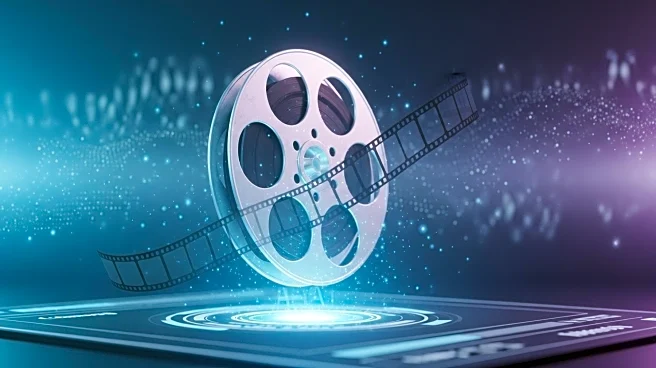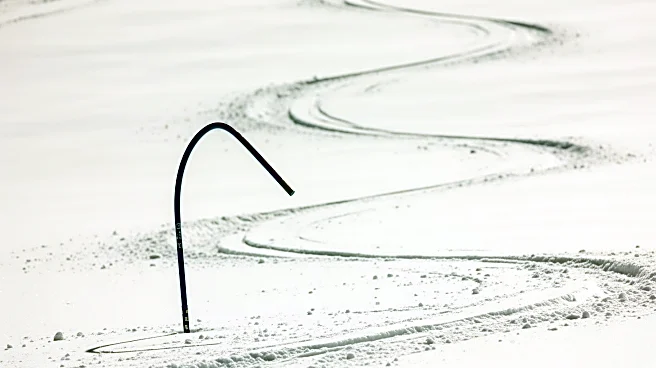What's Happening?
OpenAI, in partnership with Vertigo Films, is set to produce a feature-length film titled Critterz, utilizing generative AI technology. The film is an adaptation of a 2023 short film that showcased OpenAI's Dall-E image generator capabilities. Critterz will be a family adventure film, expanding on the original short's concept of talking creatures in a forest. The production team plans to integrate sketches from human artists into AI tools for animation, aiming to complete the project within nine months for a debut at the Cannes Film Festival. The film's script will be penned by James Lamont and Jon Foster, known for their work on Paddington in Peru.
Why It's Important?
The collaboration between OpenAI and Vertigo Films marks a significant step in the use of AI in the film industry, potentially revolutionizing traditional animation techniques. This project could pave the way for more AI-driven productions, impacting how films are made and consumed. The use of AI raises questions about creativity, copyright, and the role of human artists, as AI tools become more sophisticated. The film industry may face challenges regarding the integration of AI, balancing innovation with ethical considerations and potential legal disputes over intellectual property.
What's Next?
The production of Critterz is expected to be completed in time for the Cannes Film Festival next May. As the film progresses, stakeholders in the film industry will likely monitor its development closely, assessing the viability and reception of AI-generated content. The success or failure of Critterz could influence future investments in AI technology within the entertainment sector, prompting discussions on the ethical use of AI in creative fields.
Beyond the Headlines
The use of AI in film production could lead to broader implications for the creative industry, including shifts in employment for artists and animators. As AI tools become more prevalent, there may be a need for new regulations and guidelines to address copyright issues and ensure fair compensation for human contributors. Additionally, the cultural impact of AI-generated films could alter audience perceptions of creativity and authenticity in storytelling.











